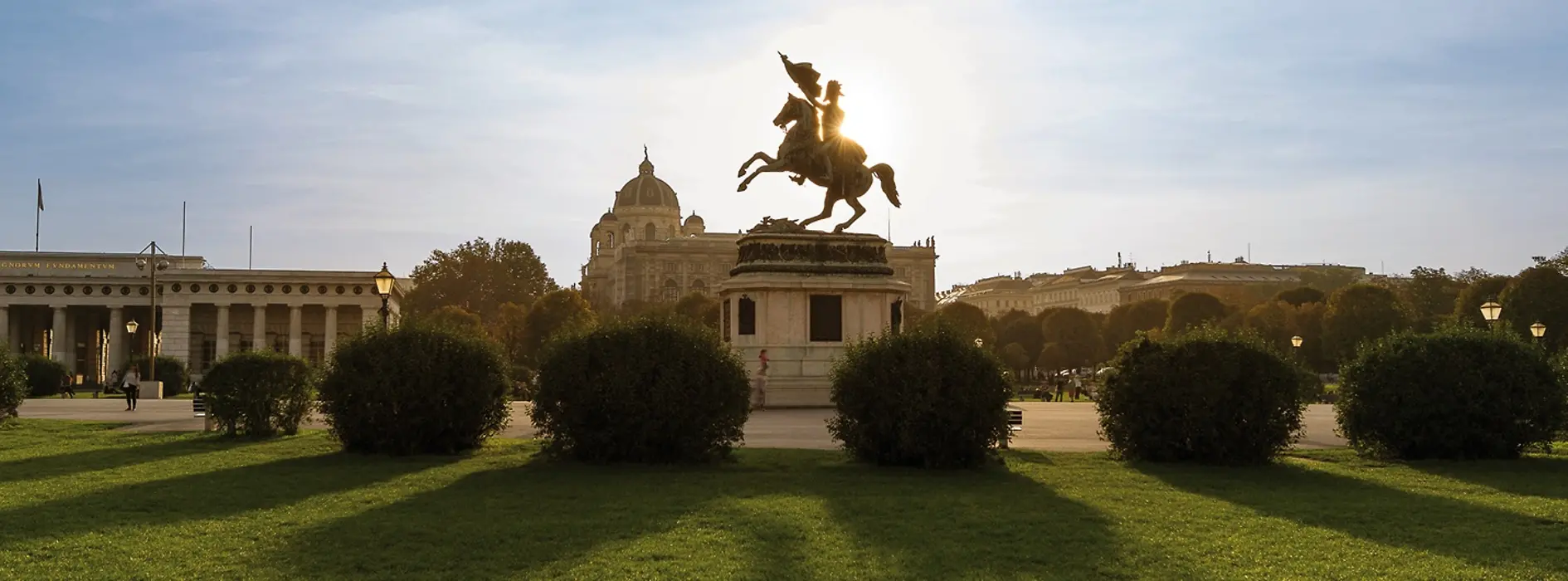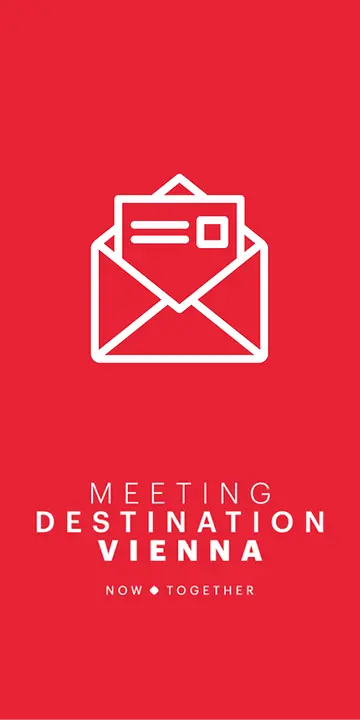Sustainability is no longer optional
Ms. Smeets, the congress of the European Heart Rhythm Association took place in Vienna at the end of March / beginning of April 2025. What was your role in this event?
As Congress Manager, I am responsible for overseeing the planning, coordination, and successful execution of the EHRA 2025 Congress. My role also includes aligning the event with our broader strategic goals - from participant experience to financial targets and environmental responsibility.
Vienna is apparently not only a city of hearts for us. Why was Vienna chosen as the location?
For EHRA, it was important to host the event in a destination that would not only inspire our delegates but also support our ambitions in terms of sustainability and innovation. Vienna's strong positioning as a green meeting destination, along with the professionalism of its local partners and the excellent infrastructures, made it a natural choice.
Why is certification as a sustainable, "green" meeting important for the EHRA? What are the benefits of certification with the Austrian Ecolabel?
Sustainability is no longer optional - it's a responsibility. The Austrian Ecolabel provides a clear framework and recognition for our efforts, helping us move beyond simple "green gestures" to real, measurable impact. Certification ensures we take a holistic approach to environmental and social responsibility.
What does the certification process look like? What are the challenges in the preparation?
The certification process is thorough. It begins well in advance, requiring careful planning in areas like venue selection, waste management, energy use, catering, travel, and communications. One of the biggest challenges is ensuring all internal teams and suppliers are on board and meet the criteria. It requires a strong internal commitment and close coordination with head of sustainability at VIECON.
What specific sustainability measures were implemented? And how were these communicated?
We implemented several impactful measures including waste sorting stations throughout the venue, elimination of disposable coffee cups, reusable water bottles, water fountains and high-quality tap water for all participants, a vegetarian-first catering concept, including "Veggie Monday", reuse of signage and eco-certified materials for printing and we tested edible cups as an innovation.
These actions were communicated in advance through the congress website and app, on-site signage, and during the opening speech. We also invited industry partners to join our sustainability commitment.
During the congress, the EHRA organized professional childcare for the participants' children in order to send a clear signal for a better work-life balance. How was the offer received?
Offering childcare helped reinforce the message that science and family life should not be mutually exclusive. It also sent a strong signal to our community, especially to early-career professionals and women in science.
Did you receive feedback from the speakers, partners and participants on the sustainability concept?
Many participants and partners acknowledged and appreciated the sustainable aspects of the congress. The reusable bottles and edible cups were particularly well received.
What will the next congress in Paris in 2026 look like? What will you take away from the congress in Vienna for the next one?
EHRA 2026 will build on what we achieved in Vienna. While every city is different, the lessons from Vienna will shape our roadmap for Paris. We'll continue to strengthen our sustainability commitment. The theme in Paris will be Illuminating Arrhythmia Management, and we expect strong participation and innovation once again.
What is your conclusion regarding the sustainable certification? Was the extra effort worth it?
Sustainability isn't just a check box. It’s a collective mindset - one that demands we rethink the way we organize, attend, and experience events.
At EHRA, we’re proud to be making progress. And while we may not have solved every challenge yet, we are fully committed to improving year after year, and to setting a new standard in sustainable congresses.
What tips do you have for organizers who would like to have their event certified?
Start early and communicate clearly with all stakeholders - from your internal teams to exhibitors and attendees. Sustainability is a shared responsibility, and transparency is key. Lastly, don't underestimate the power of small steps. Even simple changes can have a big impact when scaled across a large event.
What impression did you get of Vienna as a meeting destination? Does the city make your heart beat faster?
Vienna is a city that combines elegance with incredible ease. Everything works smoothly - from transportation to logistics - and that simplicity makes a real difference when you're organizing a large-scale event. I appreciated how effortless everything felt. The professionalism of the local partners and the city's calm efficiency allowed us to focus on delivering a great congress.
What was your personal highlight in Vienna?
One unforgettable moment was attending the opera - the elegance of the venue, the music, the atmosphere … it was truly magical. But just as magical, in a very different way, was seeing the entire congress come together after so many months of preparation. Watching thousands of people from all over the world connect, exchange knowledge, and share their passion - that was incredibly moving. Vienna offered the perfect backdrop for both: grand cultural experiences and meaningful professional moments, all with a simplicity and ease that made everything flow naturally.



